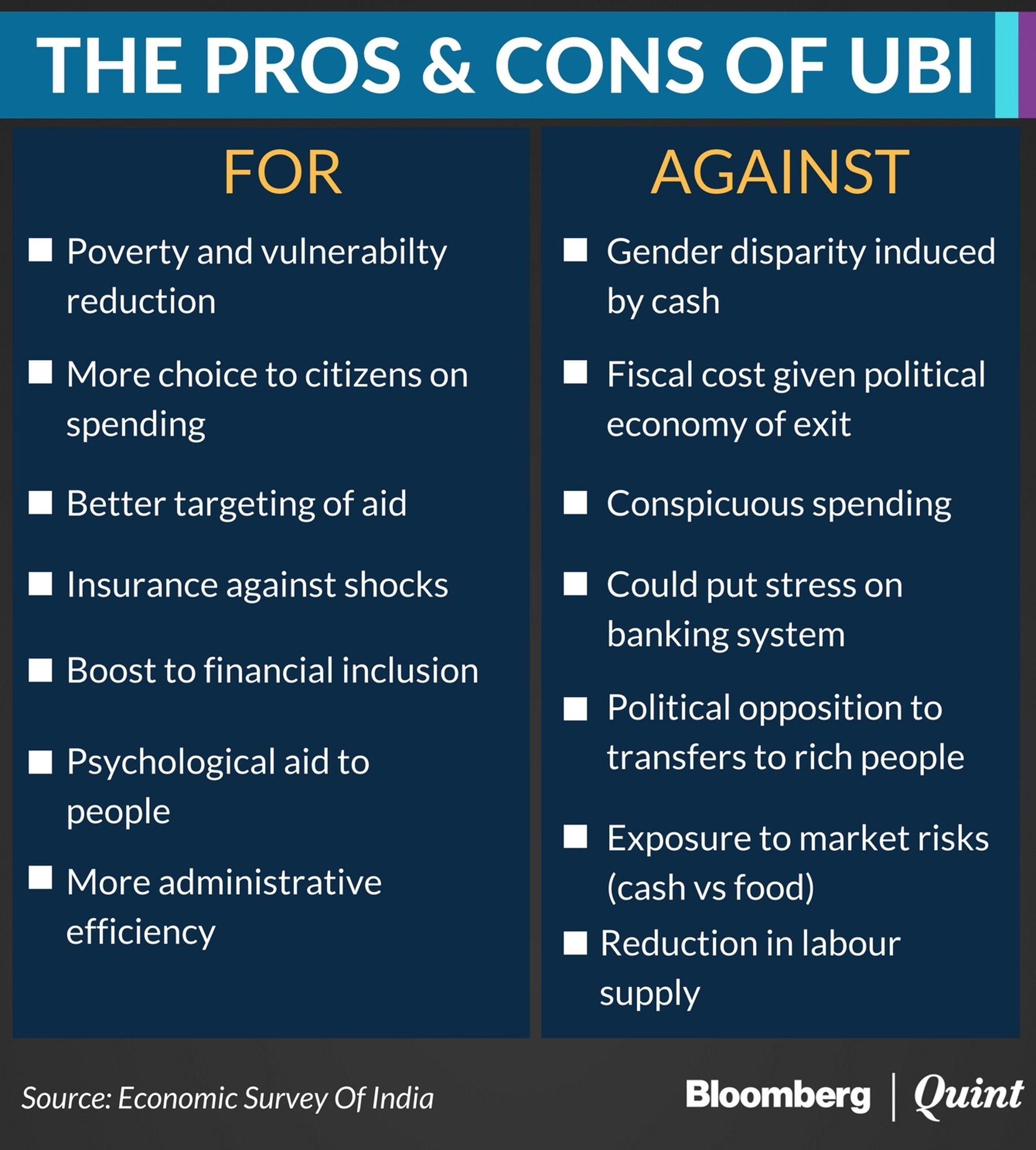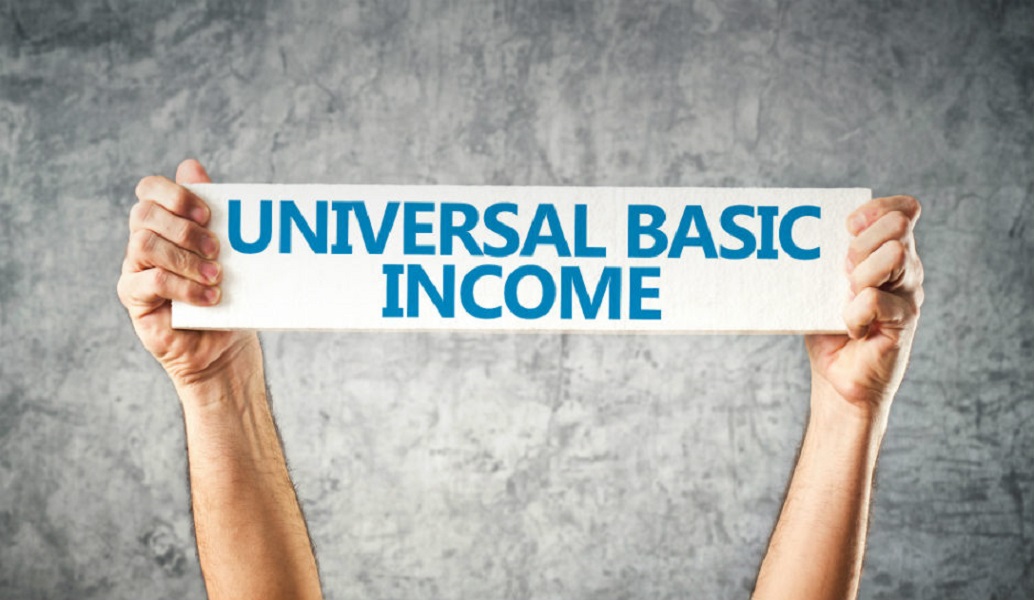Universal basic income (UBI) is periodic cash payment unconditionally delivered to all on an individual basis, without any work requirement.
In simple words, UBI is a form of social security in which all residents of a country receive an unconditional sum of money from the government or any other public institution in addition to any income obtained from elsewhere. Ideally, this payment is regardless of any differences in social or economic positions.
An unconditional income transfer to those below the poverty line is sometimes referred to as a partial basic income.
From the government side, this would mean massive shift in the way revenue received through taxation is spent. Currently, this money earned through taxation is used to fund the various services that the government provides, as well as the welfare subsidies it pays for. A shift to universal basic income would mean moving away from service delivery and instead simply providing people with the money to access those services.
The idea of a cash payment made to citizens irrespective of their wealth is centuries old and has its fans in India. A small UBI scheme was launched as a pilot in the state of Madhya Pradesh in 2010.
The Madhya Pradesh, UBI Pilot Project, 2010
The project involved 20 villages. According to the first communication of the pilot projects, positive results were found. Villages spent more on food and healthcare, children’s school performance improved in 68% of families. Time spent in school, personal savings etc. also increased. The study also found an increase in economic activity as well as an increase in savings, an improvement in housing and sanitation, improved nutrition, less food poverty, improved health and schooling, greater inclusion of the disabled in society and a lack of frivolous spending.
Also, a scheme that comes any close to a UBI already functioning in India would be the National Rural Employment Guarantee Scheme. It benefits close to 185 million people with a budget of Rs 38,500 crore by guaranteeing them employment for a specific number of days.
The pros of UBI for India are clear.
– It is easier to implement in terms of getting money to the intended recipients, as it will minimize the involvement of middlemen in the process.
– It will give people the power to spend on what they think is important for them.
– The income will be regular in fashion and thus help alleviate poverty.
In countries like India, where more than 30% of the population lives below the poverty line and where basic services of health and education remain inefficient it is difficult to ascertain how a UBI scheme would work on a nation-wide basis.
But attempting to implement this scheme brings up a crucial question: Where would the money come from? The government would have only two ways to sustain the scheme: Either cut down on other subsidies to reduce expenditure and divert money to basic income, or increase taxes. Let us examine, what would happen in each of these scenarios.
It is a known fact that India has an abysmal position when it comes to Human Development Index. Thus, a large budget for basic income would mean money taken away from crucial policies such as those on health, education etc.
Various economists have pointed out that servicing the basic income scheme through higher taxes would lead to inflation. Thus, the value of the money paid as basic income would erode ( due to inflation, people would be able to buy less with the given money).
Thus, in countries like India, a basic income scheme in addition to the subsidies is recommended. The following picture best summarizes the pros and cons of UBI in general.

There’s time before 1.3 billion Indians receive such a transfer, but UBI is definitely a powerful idea. And though the time may not be ripe for implementation of basic income in the country, the time is definitely ripe for a serious discussion about it.

The most comprehensive online preparation portal for MBA, Banking and Government exams. Explore a range of mock tests and study material at www.oliveboard.in
